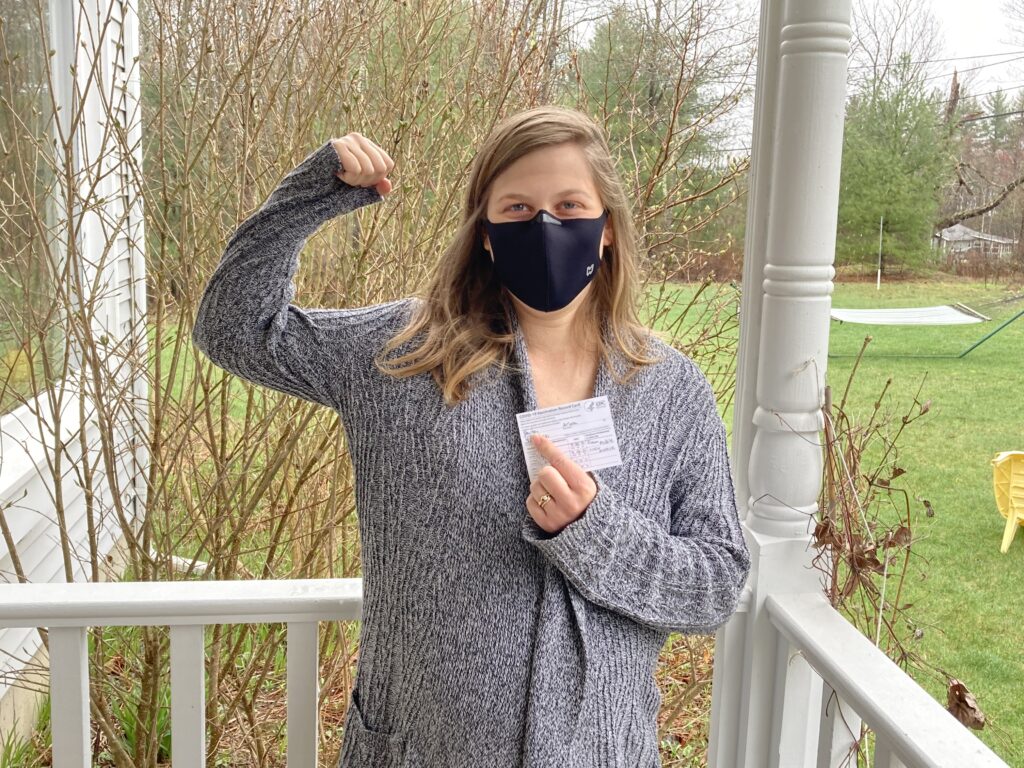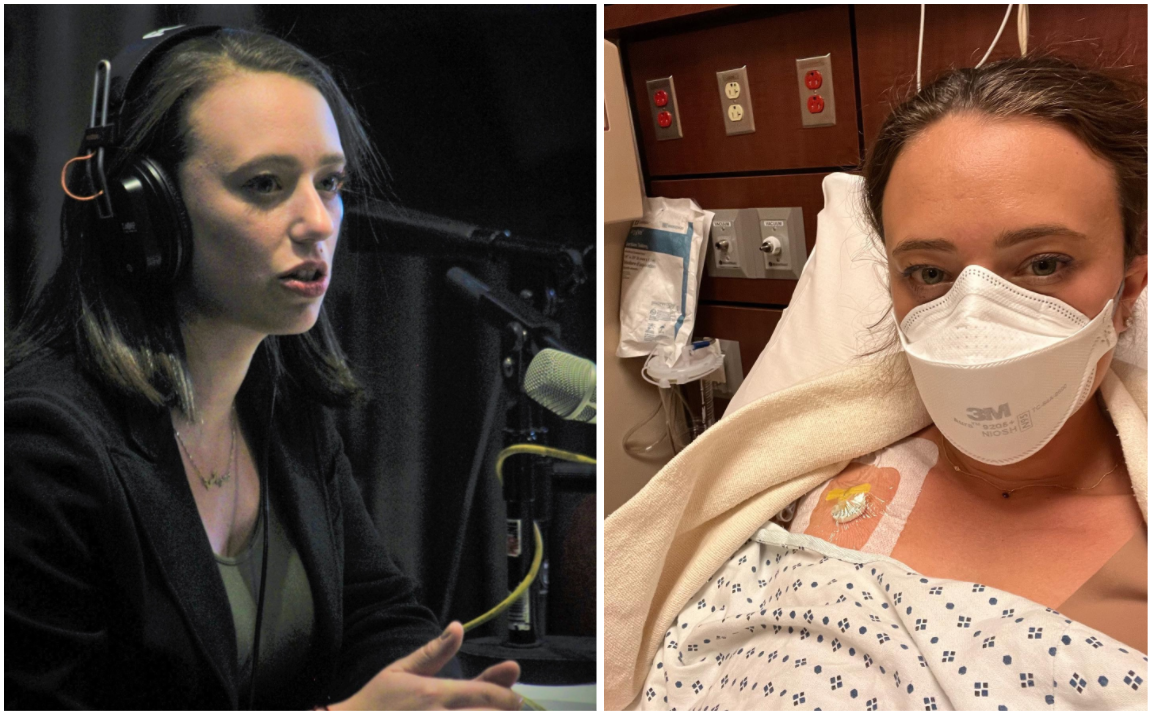As 2022 races out of the gate, I am feeling hopeful. For many reasons – some of which purposefully self-fabricated as I described on New Year’s – but one reason looms large in my mind: the chronic illness revolution is here. I feel like my entire life has been building to this moment. As a child, my mom (a physician) waffled between suggesting that my symptoms were psychosomatic and asserting that what I had was real (and likely genetic), but some disease that had yet to be discovered.
EDS and Co.
She was onto something. In 2017 – the year I was finally diagnosed in my mid-twenties – experts reexamined what they had learned in the past decade about Ehlers-Danlos Syndrome and rewrote the book. It was no longer considered rare, but rarely diagnosed, and the diagnostic criteria were revamped and broadcast to the medical world. In the past five years, a staggering number of people finally found answers thanks to newly educated doctors. Also around this time was the discovery of Mast Cell Activation Syndrome and its subsequent research efforts, as well as the foundation of Dysautonomia International and the crucial research and awareness we owe this wonderful foundation. Today, in my thirties, I finally have the answers I needed for so many years. This increased awareness about chronic illness is what gives me hope that the chronic illness revolution is beginning.
Not only are conditions like the trifecta I live with becoming more understood and treated for what they are — rather than dismissed as “just anxiety” — but tick-borne illnesses and other highly stigmatized conditions like Myalgic Encephalomyelitis are getting attention. Social media has given a platform for us to be visible. Disability and illness movements have risen to the front of society’s collective awareness thanks to activists and artists (shoutout to the impact of films like Jennifer Brea’s Unrest and her MEAction movement!). Organizers are working with legislators to include better care for people with Lyme and diabetes. On an individual level, patients like me no longer have to feel alone! We see one another on social media and hear each other’s stories reported in the news. As the world becomes more virtual-friendly, we can meet one another (and those pipe-dream medical specialists!) without having to travel.
Long COVID
The final push, it seems, for this momentum-building movement was long Covid. Millions of people have developed the same symptoms that many of us have been suffering with for years – profound fatigue, malaise, and brain fog. Some also experience tachycardia, shortness of breath, and other symptoms thought to be caused by POTS, a common (yet typically overlooked and gaslighted) type of dysautonomia.
People with long Covid may have similar experiences to those of us who were already fighting with chronic illness. However, they have one difference – they all got sick, millions of them, at the same time, in the same way. It’s one thing for a rigid medical system to write off the story of someone who developed these symptoms after, say, a difficult divorce. That could conceivably be a body’s response to too much stress. But millions of people developing the same specific long-term symptoms immediately after contracting a highly researched virus? That is too clear to ignore! The reality of chronic illness triggered by infections, viruses, and traumas is now being looked at more seriously.
Sure, there are still plenty of skeptics in the medical world who claim long Covid isn’t real, is psychosomatic, or is a form of depression, often using the same logic around antibody testing that complicates the lives of Lyme patients. But, finally, the research is beginning. Technology is being created to help those with long Covid navigate their symptoms to try to find healing.
It is now becoming widely understood that even young people can be chronically ill. People are beginning to realize that it’s not their fault and that their illness cannot just be solved by exercising. In fact, trying to push through can make things far worse, as those of us with post-exertional malaise have been trying to convince the world for years. And when experts like Dr. Anthony Fauci publicly address this new form of chronic illness – validating its legitimacy and pointing out links to other conditions like POTS and ME – it shifts the nation’s zeitgeist to be more open to our stories.

Chronic illness in the news
This became abundantly clear to me when I began hearing stories of chronic illness in the news. Big media, like NPR, the NY Times, Washington Post, and CNN were finally telling stories that sounded like mine.
A few months ago, several people texted me saying “have you heard this story???” It was from the Ezra Klein Show hosted by reporter Ross Douthat and his guest Meghan O’Rourke. These two well-respected reporters shared their stories of suffering from tick-borne illnesses. They talked about what it’s like to fight to get medical establishments to take your illness seriously. They shared their grief at having lost a huge portion of their lives to illness. And they discussed the implications of long Covid on the chronic illness community. I laughed, cried, and then promptly listened again to relive the sensation of feeling so heard. My abled, healthy friends were hearing this. Maybe, finally, they were getting it. Maybe this was the start of what I had been waiting for, the chronic illness revolution.
Some of the details discussed in the story hit home because they could only be told by someone who has been there. They detail what it’s like to wake up each day not knowing what face your illness will wear. In her book, Meghan explains that if her leg was amputated, she would have to adjust to life with just one leg. She would know each day that she would just have one leg and plan accordingly. She could gain resources, tools, and workarounds for all that comes with having one leg. But with some chronic illnesses, life can change so drastically that you have to constantly rewrite the book. This requires coming up with new solutions and asking those around you to understand and accept each new form the beast has taken.
Responses
They discussed the blind spots in our medical system and why it is such a challenge to find care when your illness doesn’t follow the simplistic order of operations taught in medical school. I know too well the trauma of gaslighting and skepticism from doctors. Even the wonderful, well-intentioned doctors I’ve met struggle to diagnose and care for these complex under-researched illnesses. I loved Meghan and Ross’s approach to addressing doctors. They do not place blame or resentment on doctors, but rather analyze where in the systems we’ve gone wrong. We have no protocols in place for diseases that look totally different person-to-person or day to day. We don’t know how to respond when each patient’s version of chronic Lyme or ME responds differently to each treatment. And we don’t have a system set up for the individualized care needed to move forward.
So, what do we do? With these stories, the research, and the awareness that has come in the last year, I am hopeful that we will figure this out. We must, if not for those of us lost in shadows for decades, then for the millions of new long-haulers out there who are teetering on the brink.
I hope you’ll join us, this year, in supporting research efforts, sharing one another’s stories, starting conversations, and sending Mighty Well wishes out there into the universe to get the chronic illness revolution moving!


2 Responses
I actually don’t support what you wrote and even though I own a lot of mightywell products. I am highly considering not buying from mighty-well in the future. I am happy that you have had good experiences but this is invalidating for people that have been abused by clinicians. Abuse is never okay. The abuse is a choice. When I was job shadowing a doctor in undergrad he told me always assume the patient is lying. I am happy to say I never chose to sell my soul to the devil and join this toxic culture of medicine. This toxic culture does more harm than good. I avoid medical appointments now. I do the bare minimum just so I can continue getting IV nutrition. But trust is earned. A degree doesn’t give you the right to demand trust. Almost all clinicians violate my right to privacy. Believe what helps you but keep in mind your opinion is biased because your mother is a doctor.
Thank you for sharing your perspective! I try to share a variety of patient stories and know that my specific story is unique (as is yours!) and yes, that my situation was significantly impacted by having a physician mother. I saw firsthand how poorly educated doctors can be and how hard she had to resist a system that encouraged her to practice poor medicine, even when her own daughter was experiencing this harm. Right now I am in a place, personally, where I am trying to focus on the doctors who have been good and on the places where the system is terrible and setting us up for horrible doctor interactions. I haven’t always been in this place, and likely won’t be here forever, and it’s important that I remember to also validate the experiences of readers who aren’t in the same place as me. I would happily chat more if you would like, and am always looking to share other patient stories — if you would like your own story featured in a blog, please let me know!